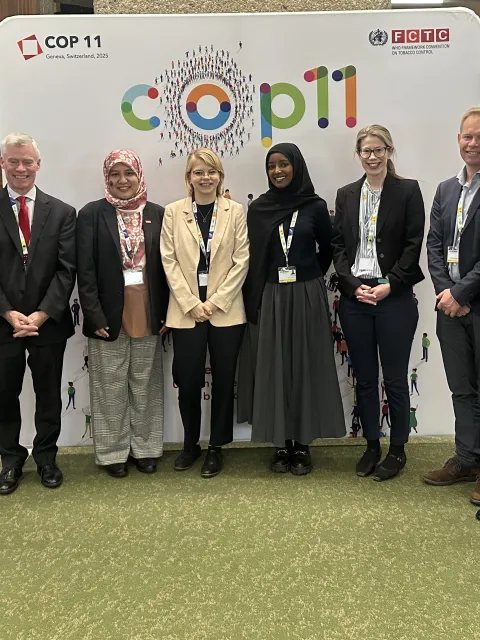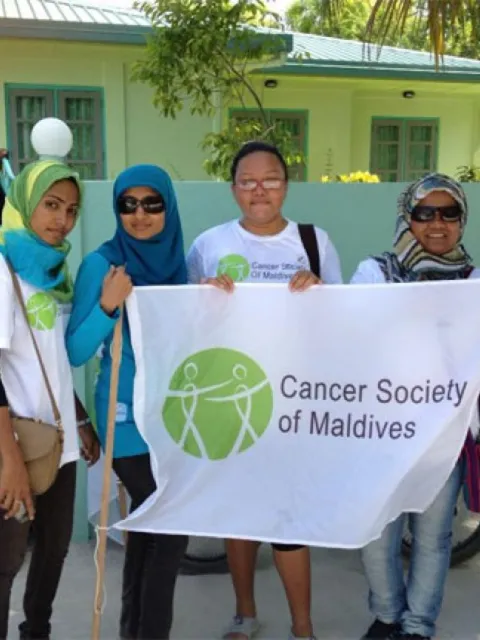Ramadan is an ideal time to quit tobacco

Tobacco kills eight million individuals every year and causes over 20 types of cancer, according to the World Health Organization (WHO). Furthermore, WHO conducted a review on smoking and COVID-19, which suggested that smoking is associated with increased severity of disease and death in hospitalised COVID-19 patients compared to non-smokers.
This burden of Tobacco emphasises the importance of investing in all available opportunities and enablers to help people quit tobacco in the context of the COVID-19 pandemic. One of the significant opportunities for tobacco use cessation in the Muslim community is the Islamic holy month of Ramadan.
During Ramadan, Muslims choose to observe a month-long fasting period that involves complete abstention from food, drink, or tobacco use, from sunrise until sunset, which is about 15 hours in the calendar of the Eastern Mediterranean region (Qatar in particular). Muslims observe this month to learn virtues such as gratefulness and improving in God-consciousness.[1] In Muslim communities, Ramadan provides a chance to overcome the usual environmental barriers of tobacco use cessation, such as pro-tobacco use living and working environments and tobacco use cultural norms.[2]
Ramadan tobacco use cessation initiatives have been carried out and studied worldwide. A London-wide Ramadan campaign reported that more than 83% of Muslims in London showed a positive attitude towards smoking cessation during Ramadan. Another study in Pakistan reported that 91% of smokers who attended a smoking cessation clinic gave up smoking during Ramadan.[3] A survey reported that 96.7% of Muslim smokers in Malaysia feel that stopping smoking during Ramadan is more straightforward than in other months.[4]
There is even objective chemical evidence of the positive effect of using a culturally competent behavioural counselling intervention to encourage smoking cessation during Ramadan among Malay smokers, represented in the more sustainable reduction in the saliva cotinine level post-Ramadan.[5] Also, in Qatar, the Tobacco Control Center at Hamad Medical Corporation reports a significant increase in the beneficiaries of tobacco cessation services in the month of Ramadan, even during the pandemic, as the service continued through telephone consultation with home delivery of medications for tobacco cessation. At the Qatar Cancer Society, the uptake of our tobacco use cessation campaigns during the month of Ramadan has been high. In 2020, our campaign reached the highest level of uptake as it coincided with the first wave of the COVID-19 pandemic in Qatar and the growing public interest in health and avoiding any factor that could worsen the burden of COVID-19.
In the last few years, Ramadan has occurred around the date of World No Tobacco Day (31st May), representing a double opportunity to promote tobacco use cessation. With more than 1.5 billion Muslims worldwide by the early 21st century, we urge WHO's Framework Convention on Tobacco Control (FCTC) to seize this golden opportunity during the month of Ramadan and work with all its stakeholders to run tobacco use cessation campaigns driven by Ramadan themes.
Tobacco use cessation centres should develop and use faith-driven behavioural counselling for the tobacco users who fast and observe the month of Ramadan in collaboration with local mosques, Muslim community centres, or Islamic religious authorities. It is also essential to secure follow-up and support services post-Ramadan to build upon the momentum.
Finally, we need to remind all tobacco users who observe the month of Ramadan of the WHO EMRO message: "If you can stop smoking for 15 hours during the day, you can keep going for 24 hours and more. Restore your heart and lung health."
_______________________________________________
References
- Mughal, F. (2014). Ramadan: what it means for general practice. British Journal Of General Practice, 64(624), 356-356. doi: 10.3399/bjgp14x680605
- Twyman, L., Bonevski, B., Paul, C., & Bryant, J. (2014). Perceived barriers to smoking cessation in selected vulnerable groups: a systematic review of the qualitative and quantitative literature. BMJ Open, 4(12), e006414. doi: 10.1136/bmjopen-2014-006414
- Qidwai W. Barriers to smoking cessation: Results of a survey among family practice patients. Middle East Journal of Family Medicine. 2004; 5::5.
- Abu Bakar AM, Lokman HJ, Amal MN, Anselm ST, Chan WH, Noraziah AR, Norliza I, Nirmala BP, Omar NM. Religious belief in relation to smoking: A cross-sectional study among Muslim males in the month of Ramadan. Malaysian Journal Of Medicine And Health Sciences. 2002; 2:2:32–33.
- Ismail, S., Abdul Rahman, H., Abidin, E., Isha, A., Abu Bakar, S., Zulkifley, N., & Fuad, A. (2016). The effect of faith-based smoking cessation intervention during Ramadan among Malay smokers. Qatar Medical Journal, 2016(2). doi: 10.5339/qmj.2016.16


